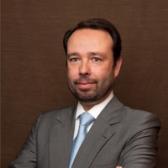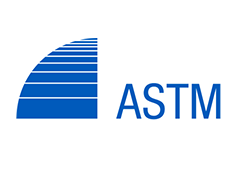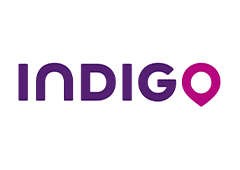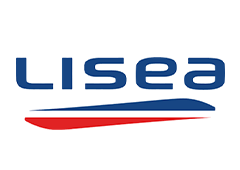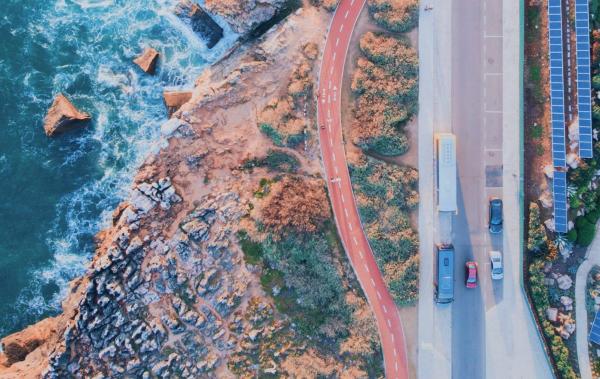Transport companies share best practices to meet sustainability challenges
Responsible finance
Transport companies share best practices to meet sustainability challenges
-
26 January 2021
-
Real Assets
-
Infrastructure, Sustainability
Reading time: 10 minutes
Being part of this working group is a tremendous opportunity to share knowledge and best practices in order to improve our ESG performance.
Ardian’s Infrastructure and Sustainability teams have launched a working group that brings together portfolio companies in the transport sector to share insights and experience, and increase resilience.
“The initiative aims to identify ways to improve the long-run performance of a sector that provides essential economic infrastructure but faces significant challenges, notably in reducing its carbon intensity. Although the idea for the working group came up before the pandemic began, the rapid spread of Covid-19 only increased the need for portfolio companies to compare their experiences and learn from each other,” says Mathias Burghardt, Member of the Executive Committee and Head of Ardian Infrastructure.
Candice Brenet, Head of Sustainability at Ardian, says “the idea of forming the Transport Working Group illustrates Ardian’s approach to addressing global challenges. We engage with management in the field and together create roadmaps for positive change. We are very pleased with the way our companies have actively participated and openly shared best practices.”
The group held its first online meeting in July 2020, gathering operational leaders from six portfolio companies including the motorway operators Ascendi from Portugal, ASTM, based in Italy, and Vespucio Norte from Chile, along with SEA, which operates the two airports in Milan, and Lisea, which manages the 300-km high-speed rail link between Tours and Bordeaux in France.
In addition, French car park operator Indigo, a former Ardian portfolio company, accepted an invitation to join the group, having made significant progress with its sustainability initiatives during Ardian’s holding period.
We were also able to touch base with our colleagues in Europe on how they were addressing the second wave of Covid-19 and based on these conversations we fine-tuned some of the procedures we had designed in preparation for a return to office-based working.
How working group members tackled the Covid-19 crisis
Discussion during the first online meeting centred on the companies’ experiences of managing through the first wave of Covid-19 infections, which hit Europe from March onwards. The teams shared their experiences and challenges in activating and adapting their business continuity plans, and the steps they had taken to ensure employees could work safely.
Giorgio Medici, Environment and Airport Safety Manager at Milan airports operator SEA, said the discussions highlighted the importance of agility and flexibility in how businesses operate. “Our ability to adapt to drastic changes has, for example, allowed us to move quickly and efficiently to offset huge declines in passenger traffic with an unexpected increase in cargo flights.”
Raphaëlle Muhlmann-Eytan, Director of Asset Management in the Infrastructure team, said the Ardian team had three goals for the session: to encourage knowledge-sharing, enhance long-term thinking and help participants keep pace with a rapidly changing environment. “Everyone was very frank about the issues and difficulties they had faced, including the mistakes they made and what they learned from them,” she says.
The pandemic raised our awareness of a new class of events that impact business continuity. We installed new infrastructure and created new procedures and communication routines to minimize disruption to our operations in situations like this.
The value of sharing experiences and knowledge
“This working group creates networking opportunities between companies that do not normally interact,” says Pierre Klemas, Sustainability Director at Ardian. “Our role as responsible investors also involves bringing together diverse teams to enable knowledge-sharing and innovation.”
Hervé Le Caignec, President of Lisea, said: “The crisis taught us that good communication and the ability to adapt quickly are vital to maintain employee safety and engagement, as well as business performance.”
One immediate sign of success for the working group came the day after it was held, when Enrique Méndez Velasco, CEO of Vespucio Norte in Chile, contacted fellow motorway operators ASTM and Ascendi for advice on crisis-management measures to handle Covid-19, which had reached Chile later than Europe.
“Given that Covid-19 had been progressing in Europe about three months ahead of Latin America, it was particularly useful to share experiences with our colleagues who have faced the effects before us,” he said.
Muhlmann-Eytan adds: “This was a great example of what we were trying to achieve, and now they speak on a regular basis. The fact that they can reach out to each other is a big differentiator for us. They have a lot to discuss.”
The feedback following the first webinar was universally positive. The verdict of Miguel Martin, Chief Business Development Officer of Ascendi, was typical: “This group provided Ascendi with unique insights into best practices and risk management, as well as innovative ideas that we can adopt for the benefit of our stakeholders.”
Raphaël Senicourt, Sustainable Development Director at Indigo, agreed: “Ardian's structured approach allowed everyone to express their views on how their company managed the health crisis and lockdown. This made it easy to compare our actions and draw inspiration from other people’s ideas as we prepared for a possible second wave of the epidemic and another lockdown.”
Following the initial meeting and the positive feedback from the companies that took part, preparations began immediately for a second session on how members of the working group will make progress towards carbon neutrality. Future meetings are also being planned with issues such as biodiversity likely to feature on the agenda.
In supporting the Transport Working Group we saw excellent collaboration among the members, and we view this initiative as an effective way to tackle current and future ESG challenges and opportunities.
ASCENDI
Ascendi, the 2nd largest Portugal motorway network, manages infrastructure assets and provides toll collection and operation & maintenance services. It owns majority interests in 6 Portuguese road concessions, covering 630km in operation.
ASTM
ASTM is one of the world’s largest operator in the management of motorway concessions with around 4,500 kilometers of network under concession in countries such as Italy, Brazil and the United Kingdom.
INDIGO
Indigo is the world leader in parking and individual mobility, operating and driving development in both on- and off-street parking across continents. The company operates in over 750 cities around the world with more than 23,000 staff across 12 countries.
LISEA
The LISEA project represents one of the biggest concession contracts in Europe. LISEA was awarded the concession contract for the Tours-Bordeaux HSL (South East Atlantic (SEA) project). Under this contract established in June 2011 by SNCF Réseau, LISEA is responsible for funding, designing, building, maintaining and operating the new HSL until 2061 (for 50 years).
SEA
SEA Group manages the airports of Milano Linate and Milano Malpensa providing all services and related activities. The business model of the SEA Group is based on the characteristics of the three business areas in which the company operates: commercial aviation, general aviation and energy.
VESPUCIO NORTE
Vespucio Norte Express is a critical urban express highway in Santiago de Chile with 29 kilometers of extension. Túnel San Cristóbal in Santiago de Chile is a 4 kilometers toll tunnel expressway in Santiago.

